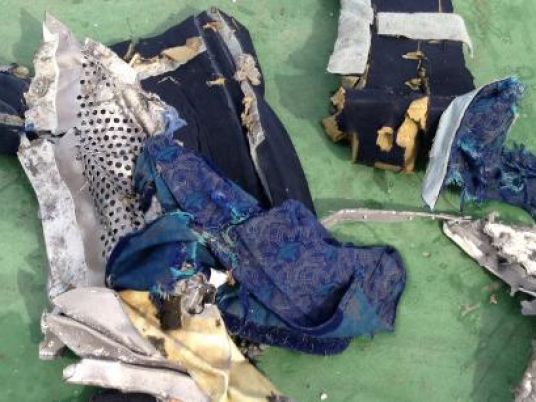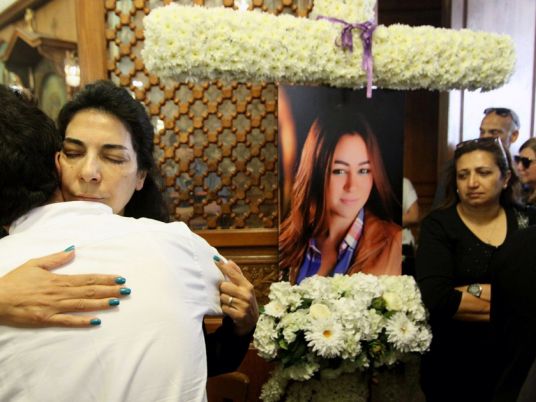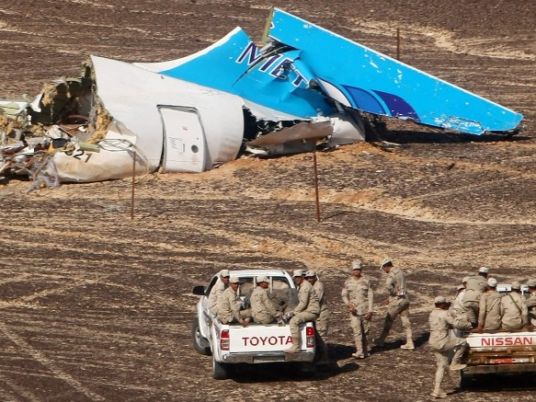
Security at French airports, particularly Charles de Gaulle Airport in Paris, has come under intense scrutiny since the crash on Thursday of an EgyptAir plane en route from Paris to Cairo, with the loss of 66 lives.
Both French President Francois Hollande and Egypt's President Abdel Fatah al-Sisi have said it is too early to rule out any possible explanations for the tragic incident. However, there are innevitably suspicions of a bomb attack, with eyes turning to Charles de Gaulle Airport and a possible breach of airport security.
While media outlets report improved security measures in the wake of recent terror attacks, some experts have said that it would be quite possible for a bomb to be placed on board a plane flying out of Paris. Meanwhile, there are reports of security clearance being withdrawn from staff at Charles de Gaulle in recent months due to concerns that some staff may have terrorist sympathies, even praising the Paris attacks of November last year.
According to the Swiss news publication Le Temps, security has been reinforced in the airport since the Paris attacks, with increased numbers of security personnel deployed throughout terminals and 400 members of the French Riot Police in place to deal with suspect baggage, aided by sniffer dogs.
Le Temps reported a further tightening of security measures since a bomb attack on Brussels airport in March. French Interior Minister Bernard Cazeneuve recently confirmed that armored vehicles have been situated on the runways of Charles de Gaulle and strategically weak points have been reinforced, such as the connection points to national rail services in Terminal Two and the overground metro linking the airport to the Paris metro network.
However, such security measures focus primarily on the detection of potential attacks in airport buildings, said Le Temps, as opposed to security procedures relating to baggage and other means by which bombs might be smuggled onto a plane.
According to Le Temps, securing such areas of operations is “an entirely different matter, and depends on the staff manning scanning machines, baggage transfer, and the loading of baggage onto and off planes standing at the airport.”
Questions have been raised about the possibility of terrorists operating from within airports under the guise of security personnel. According to an article in British newspaper The Telegraph, French detectives are searching for suspects among the 85,000 people with "red badge" clearance at the airport, who have access to restricted areas such as baggage-handling.
Standard background checks on such staff are often limited to ensuring workers do not have a criminal record and are not on a terrorist watch-list. The situation is complicated by the use of security contractors and the high turnover of staff.
The newspaper reports that red-badge security clearance was withdrawn from around 70 staff at the airport in December for having "praised the attacks in Paris, prayed at mosques linked to radicalism or showing signs of growing religiosity like refusing to shake hands with women."
Following November’s attacks in Paris, aeronautical expert Gerard Arnoux confirmed in an interview with the French daily newspaper Libération that, “Someone could potentially plant a bomb on a plane at Charles de Gaulle.”
He went on to say that airports are not entirely secure and sealed-off spaces, and “anyone could lob a package over a wall” onto the premises of an airport. Such vulnerabilities leave open the possibility that terrorists working inside the airport might co-ordinate with those outside to smuggle a bomb onto a plane.
In a report published in The Telegraph on Monday, an unnamed airport authority spokesperson was quoted as saying that security standards are not high enough at Charles de Gaulles, the biggest airport in France and a critical connection point for hundreds of flights to Europe and the globe each day.
According to the spokesperson, specific areas of weakness include infrequency of baggage checks and a slow police response to suspect baggage and packages.
French newsmagazine L’Obs reports that investigations into the events preceding the departure of EgyptAir flight MS804 from Charles de Gaulles are now being undertaken by the French air transport police, who will be going over security “with a fine tooth comb” to check for holes in the airport’s security procedures. Among the first areas to come under scrutiny is the way passengers and their baggage are checked prior to boarding aircraft.
Egypt's own airport security procedures have been under scrutiny since the downing of a Russian passenger plane over Sinai in October, with the loss of all 224 people on board. The Egyptian government has said that the aircraft was brought down by a bomb, and the Islamist terror group "Sinai Province" claimed the attack.
The incident led the Russian government to suspend flights to and from Egypt while security procedures were assessed and improved at Egyptian airports. The Egyptian government hired British security firm Control Risks to conduct an assessment of security measures and make recommendations.
However, in another apparent security breach, an EgyptAir plane was hijacked in March by a man wearing a fake explosive belt. The plane was hijacked after take-off from Alexandria and forced to land in Cyprus. All the passengers and crew were released unharmed, but the incident raised further questions about airport security.
Investigations into the loss of EgyptAir flight MS804 on Thursday are ongoing, but progress is hampered by the difficulty of recovering the plane's two black boxes, which are likely in the Mediterranean Sea, several thousand meters below the surface. While there has been speculation about the possible causes of the crash, including reports of smoke being detected on board and a possible explosion, Egyptian authorities have insisted that any conclusions will have to wait until a preliminary report is published in one month's time.



